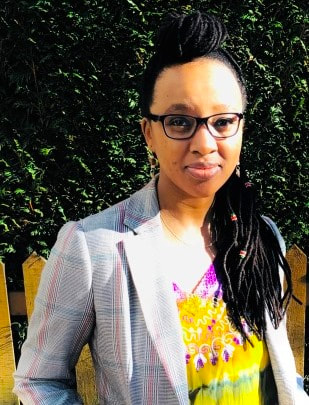I am an Assistant Professor in the Sociology Department and Labour Studies Program at Simon Fraser University located on the unceded Coast Salish Territories. My scholarly work focuses on race, labour and identity formation.
My research examines how race and intersecting categories of social difference such as gender, class and nationality, shape the work-life experiences and identities of Black Canadians. In this scope, I historicize the socio-economic inequalities faced by Black Canadians and explore the political strategies by which this community navigates systemic marginalization within the context of transnational capitalist society.
My dissertation focused on the experiences of racialized Black African immigrant caregivers in lower mainland Vancouver. This research examined how power relations entrenched in intersecting social-political categories such as race, class, gender and immigration status administer social inequalities, reproducing hierarchies upon which material and symbolic powers are based.
Based on a life-work framework interrogating the lives and material realities of caregivers’, my study identified and discussed border encounters. These border encounters were epitomized through caregivers’ stories and narratives of “not quite fitting in” and a contradictory sense of belonging and exclusion, signifying discursive covert processes and practices in which workers described being singled out, and or assigned less desirable or more dangerous work. Indicative of the liminal experiences that often pervades the lives of racialized immigrants; border encounters belied the principles of multicultural Canada.
Overall, my research conceptualizes how social identities such as race, class, ethnicity, gender etc. – as sites of (dis) empowerment – influence ‘everyday’ lived experience, and how this is understood, negotiated and contested. My Dissertation was awarded the 2019 CSA Outstanding Graduating Sociology Student Award
My research examines how race and intersecting categories of social difference such as gender, class and nationality, shape the work-life experiences and identities of Black Canadians. In this scope, I historicize the socio-economic inequalities faced by Black Canadians and explore the political strategies by which this community navigates systemic marginalization within the context of transnational capitalist society.
My dissertation focused on the experiences of racialized Black African immigrant caregivers in lower mainland Vancouver. This research examined how power relations entrenched in intersecting social-political categories such as race, class, gender and immigration status administer social inequalities, reproducing hierarchies upon which material and symbolic powers are based.
Based on a life-work framework interrogating the lives and material realities of caregivers’, my study identified and discussed border encounters. These border encounters were epitomized through caregivers’ stories and narratives of “not quite fitting in” and a contradictory sense of belonging and exclusion, signifying discursive covert processes and practices in which workers described being singled out, and or assigned less desirable or more dangerous work. Indicative of the liminal experiences that often pervades the lives of racialized immigrants; border encounters belied the principles of multicultural Canada.
Overall, my research conceptualizes how social identities such as race, class, ethnicity, gender etc. – as sites of (dis) empowerment – influence ‘everyday’ lived experience, and how this is understood, negotiated and contested. My Dissertation was awarded the 2019 CSA Outstanding Graduating Sociology Student Award


